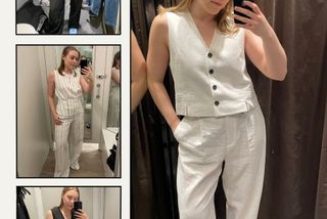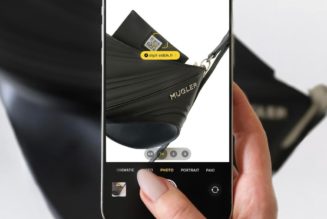
The clock is ticking for luxury brands to meet a new European Commission regulation called the Ecodesign for Sustainable Product Regulation (ESPR), that will take effect sometime this year. The aim is to make transparency and traceability a regulatory requirement for luxury brands made and/or sold in Europe.
To meet the new regulations, luxury brands are turning to digital product passports (DPPs), which connect physical products to a digital identity. In a report from the Aura Blockchain Consortium and Deloitte, titled, “Embracing Digital Product Passport as a regulatory requirement: Setting a new standard for luxury,” the report’s authors said DPPs function “as a digital link between the product, the owner and the brand,” while integrating and preserving information about the entire product lifecycle.
More from WWD
The report noted that DPPs meet the needs of consumers, luxury brands and government regulators. “There is, therefore, an opportunity to use DPPs to create value for the brands and the consumers, while also anticipating incoming regulations,” the report stated, also noting that the ESPR has accelerated the adoption of DPPs, “which will soon become a necessity, and brands who adopt the DPP early will be more prepared.”
Aside from transparency and traceability, DPPs also offer protection for luxury brands and consumers. Franck Le Moal, chief information officer at the LVMH Group, said in the report that the world of luxury is challenging; “we face many issues in terms of counterfeit, explaining the true story and origin of products. The Digital Product Passport is a strong complementary enabler to follow the products from the beginning to the end and demonstrating to customers that they can trust us.”
DPPs also allow for “product storytelling,” which has emerged as a differentiator in the luxury-good market, the report said. “From a downstream perspective, DPPs can help drive new direct revenues by enabling a more comprehensive product storytelling and deeper brand experiences,” the report’s authors said, adding that when deployed with the right communication strategy to properly convey the value to customers, “product storytelling is seen to lead to a significant price upscaling for luxury products.”
This includes providing traceability and sustainability information before the selling process, which influences the purchasing decision and increases conversion rates. In addition, enabling transparency “after the selling ceremony boosts customer confidence, trust and loyalty with the brand,” the report’s authors said.
Lorenzo Bertelli, head of marketing and CSR at the Prada Group, said in the report that tagging a product “and enabling digital storytelling is an amazing conversation starter for the sales assistants in our boutiques. It increases the conversion rates and ensures that the customer verifies the ownership of their product, creating a new channel for direct engagement that never existed before.”
And there are other benefits as well.
The report stated that from the perspective of a luxury brand, DPPs can drive numerous value-generating applications that include enhancing a product’s storytelling “with valuable information on sustainability, circularity and traceability” and ensuring a product’s authenticity and rightful ownership, thereby fighting counterfeits and theft. It also allows for the generation of richer data across the customer lifetime, “better understanding how they use and engage with their products.”
Best of WWD









